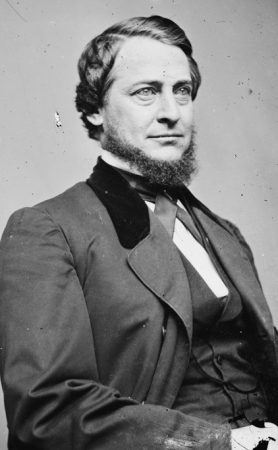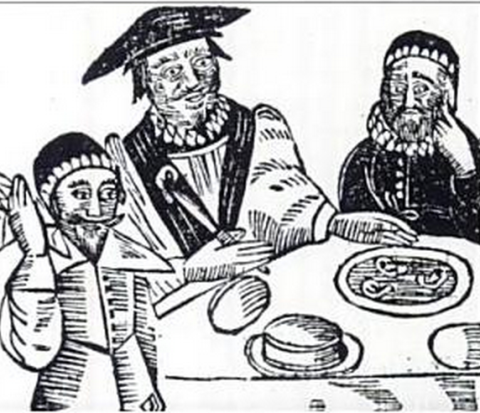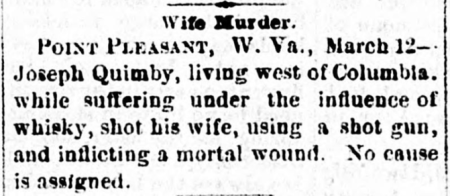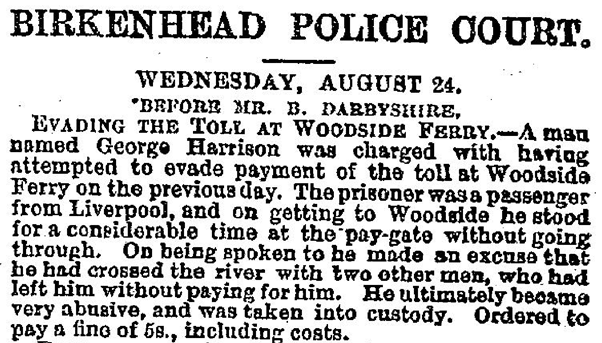
Clement L. Vallandigham (1820-71) was a prominent Ohio lawyer and politician who served in Congress prior to and during the Civil War.
A pacifist by nature, Vallandigham made several inflammatory speeches against the war and those he deemed responsible for it, including Abraham Lincoln. In May 1863, Vallandigham was arrested and temporarily interned, before being deported to the Confederacy. The following year he sneaked back into the United States via Canada, with the aid of a new hairstyle and a false moustache.
After the war, Vallandigham returned to his native Ohio and to practising law. In June 1871 he was in the town of Lebanon, acting as lead defence counsel in a murder case. His client, a Hamilton ruffian named Thomas McGehan, was charged with shooting another man in the stomach during a bar room fight. Vallandigham’s line of defence was quite simple: the victim had in fact shot himself while trying to withdraw his pistol while rising to stand.
At breakfast one morning, Vallandigham showed his legal team how he intended to demonstrate this in court – but made a fatal error:
“Mr McBurney [another lawyer] had expressed some doubts as to the possibility of Myers [the victim] shooting himself in the manner described by Mr Vallandigham, when the latter said ‘I will show you in a half a second’. He picked up a revolver and putting it in his right pocket, drew it out far enough to keep the muzzle touching his body, and engaged the hammer. The weapon exploded and sent its deadly missile into the abdomen at a point almost corresponding with that in which Myers was shot. Mr Vallandigham immediately exclaimed that he had taken up the wrong pistol… There were two revolvers on the table, one loaded and the other unloaded. Unfortunately Mr Vallandigham seized the former.”
Vallandigham was carried to bed and doctors were summoned but they were unable to locate the bullet or stem his internal bleeding. He died some 12 hours later. His corpse was packed in ice and returned to his home in Dayton for burial. Vallandigham’s wife Louisa, who was attending her brother’s funeral at the time of her husband’s demise, was grief stricken; she died from a heart attack seven weeks later. Vallandigham’s client, Thomas McGehan, was retried twice and eventually acquitted.
Source: The Stark County Democrat (Ohio), June 22nd 1871. Content on this page is © Alpha History 2019-23. Content may not be republished without our express permission. For more information please refer to our Terms of Use or contact Alpha History.



